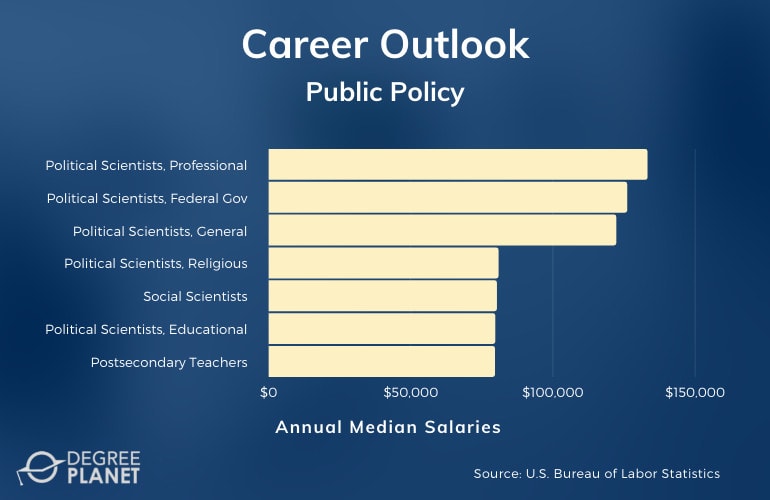Is a masters in public policy worth it?

This question may be on your mind if you are considering pursuing an MPP degree.
Editorial Listing ShortCode:
A masters in public policy could help you advance your current career or qualify you for a new, higher paying career in this rewarding field.
Is a Masters in Public Policy Worth It?

Yes, a master’s in public policy is worth it for many students. The Bureau of Labor Statistics is projecting 5% job growth in life, physical, and social science occupations over the next 10 years.
Common public policy careers in this field include political scientist, urban or regional planner, and survey researcher. A master’s degree in public policy could open the door to new career opportunities. An understanding of public policy is helpful for anyone wanting to work in government offices or in related fields, such as business or law.
A masters in public policy could also help you get a job consulting for an organization that advocates for a cause you are passionate about.
Editorial Listing ShortCode:
Public policy graduate programs often take an interdisciplinary approach that enables you to learn about and apply knowledge from a variety of different subjects. MPP programs can also help you cultivate your critical thinking skills and understand how specific public policies can affect society as a whole.
A good public policy graduate program can help you to become a big-picture thinker who sees how small policy changes could affect everyone. You may also advance your abilities to analyze quantitative and qualitative data, and you may hone your speaking and communication skills.
If you find yourself pressed for time, you may also consider pursuing a part time masters in public policy program.
How to Decide Whether a Masters in Public Policy Is Right for You

Here are some qualities that might be helpful to have while pursuing a master’s degree in public policy and while working in the field after graduation.
1. You are analytical.
While obtaining a public policy graduate degree, you may mainly be learning how to analyze public policy. It’s helpful to be able to think about issues from many different sides and points of view.
You may also find yourself conducting research or studying the results of other people’s research, so you’ll likely need to learn to correctly interpret statistics.
2. You are proficient in core subjects.

When studying public policy, it can be helpful to have a strong background in core academic subjects.
A good working knowledge of history can help you understand how changes in public policy have affected people in the past. This can help you better assess how changes could affect people in the present and future.
Studying math and science can help you learn research methodology and help you learn how to draw logical conclusions from research. Scientific knowledge is especially helpful if you want to study policies that pertain to public health or related concerns.
It is also beneficial to have strong written and oral communication skills in the field of government.
3. You are interested in making the world a better place.

A masters in public policy may be a good fit for you if you are motivated to make a positive change in society.
Public policy can have far-reaching effects on society and culture as a whole.
5 Things You Can Do with a Masters Degree in Public Policy

What can you do with a masters in public policy?
Here is a list of five careers that relate to public policy. A masters degree in public policy could be useful for pursuing these career paths.
1. Political Scientist in Federal Government
Political scientists who work for the federal government may be called upon to predict the possible effects of budget cuts to a government program.
They may also assess whether public services are operating efficiently, among other things.
2. Political Scientist in Private Organizations

Not everyone in the field of public policy works in the government sector. Some people in this field work for a wide variety of private organizations.
An organization that advocates for immigration reform, for instance, might hire an analyst to help determine what specific policies they should be advocating for. Could a policy that sounds good in theory have unintended consequences? A public policy analyst might be called upon to speculate about the answers to such questions.
3. Community College Public Policy Teacher

A masters in public policy may qualify you to teach at a community college.
If you go on to obtain a doctoral degree in public policy or a related field, you could consider teaching the subject to others as part of an undergraduate or graduate program at a university.
4. Survey Researcher

A survey researcher might work for a firm that collects data about public opinions on various topics, including public policy.
Public policy is usually informed by research, so conducting research is an essential part of the public policy field. Researchers’ main tasks include collecting and analyzing data.
5. Urban and Regional Planner
Knowledge of public policy could be helpful for urban and regional planners.
Editorial Listing ShortCode:
Urban and regional planners help decide on the best zoning and use of physical space in their communities. They often work with local governments or counties.
Master’s in Public Policy Alternatives

Here are three other graduate degrees that are common in political science and related fields:
- Master’s in Public Administration. While a public policy graduate degree focuses on analyzing policies, a public administration degree typically focuses more on how to best implement them.
- Master’s in Public Affairs. In business, public affairs is a type of public relations intended to bridge the gap between companies and their stakeholders. Anyone with an interest in what the company does can be considered a stakeholder, such as politicians, labor unions, and stock shareholders.
- Master’s in International Relations. A master’s in international relations focuses on relationships between countries. This type of master’s degree could be most useful for someone intending to work at the federal level of government.
All of these types of graduate degrees typically feature a significant overlap in required coursework.
Public Policy Masters Careers & Salaries

According to the Bureau of Labor Statistics, a masters in public policy may qualify you for the following careers.
| Careers | Annual Median Salaries |
| Political Scientists, Professional, Scientific, and Technical Services | $136,640 |
| Political Scientists, Federal Government | $133,460 |
| Political Scientists, General | $125,350 |
| Political Scientists, Religious, Grantmaking, Civic, Professional, and Similar Organizations | $87,910 |
| Social Scientists and Related Workers | $87,260 |
| Public Policy Professor | $85,760 |
| Urban and Regional Planners | $75,950 |
| Political Scientists, Educational Services | $75,260 |
| Historians | $63,100 |
| Survey Researchers | $59,870 |
With a masters in public policy, you may also qualify for a variety of leadership and management roles.
Is Public Policy a Good Career?

Public policy may be a good career fit for you if you want to make the world a better place, have good analytical and communication skills, and enjoy following current events.
With a masters in public policy, you may pursue a variety of high-paying careers. Political scientists, for instance, make an average salary of $125,350 each year (Bureau of Labor Statistics).
Editorial Listing ShortCode:
A public policy masters degree may also open doors to many management and leadership positions. Management occupations make an average annual salary of $109,760.
What Can You Do with a Masters in Public Policy?

There are a variety of applications for a public policy graduate degree, especially in the field of political science.
You could conduct research on the effects of policy changes, or you may consult with lobby organizations about the specific policies they should advocate for. You may even analyze policies for the federal government. With a graduate degree in public policy, you may also enter the fields of public relations and marketing.
You may also become a teacher of public policy at the postsecondary level, specifically for community colleges. If you desire to teach at universities as a professor, you may need to pursue a doctoral degree.
What Is the Difference Between a Master of Public Administration vs. Master of Public Policy?

A masters of public administration is another graduate degree that is common in the field of political science.
There is usually overlap in the required coursework between public administration and public policy, but these distinctions may vary from one university to another. A masters of public administration program usually puts more of an emphasis on practical and efficient methods of implementing policies.
A masters of public policy program, on the other hand, analyzes policies and looks for ways they need to be changed and improved.
Getting Your Masters in Public Policy Online

In the field of public policy, you have the potential to make a real difference to society. Earning a master’s degree in public policy could help you to pursue new career opportunities.
Many accredited public policy graduate programs are also offered online. This could be a convenient option if you are currently unable to attend school on a traditional campus for any number of reasons.
You can take the next step in your educational journey today by exploring public policy masters programs from accredited universities.

